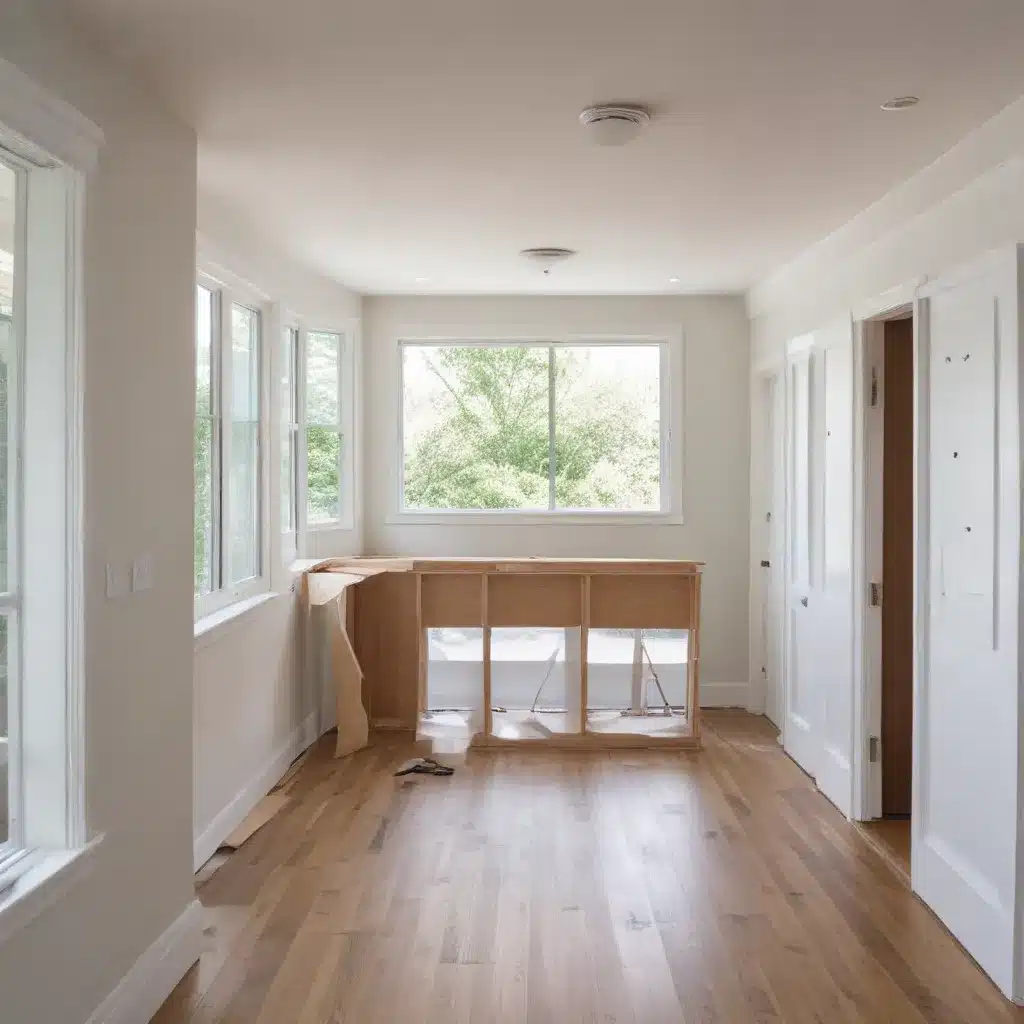
Eco-Friendly Renovations: Navigating the Permit Process Efficiently
As an experienced home improvement consultant, I understand the excitement and challenges that come with transforming your living space. When it comes to eco-friendly renovations, it’s not just about making your home more sustainable – it’s also about navigating the complex world of permits and regulations. In this comprehensive guide, I’ll share practical insights to help you seamlessly navigate the permit process while embracing eco-friendly principles and maximizing the benefits of your renovation project.
Defining Eco-Friendly Principles
At the heart of any eco-friendly renovation lies a deep commitment to sustainability and environmental consciousness. This encompasses a holistic approach that considers the entire lifecycle of your project – from material selection and construction methods to energy efficiency and waste reduction. By embracing these principles, you can create a living space that not only reflects your values but also positively impacts the planet.
Sustainable Materials and Practices
One of the cornerstones of eco-friendly renovations is the use of sustainable materials. This includes choosing renewable resources like bamboo, cork, and reclaimed wood, as well as prioritizing low-VOC (volatile organic compound) paints, energy-efficient appliances, and recycled or recyclable building products. Additionally, implementing passive design strategies, such as optimizing natural light and ventilation, can significantly enhance the energy efficiency of your home.
Incorporating Renewable Energy
Beyond material selection, integrating renewable energy sources into your renovation can take your project to the next level of sustainability. This could involve the installation of solar panels, geothermal heat pumps, or wind turbines, depending on the feasibility and local regulations in your area. These strategic investments not only reduce your carbon footprint but also provide long-term cost savings on your energy bills.
Navigating Local Regulations
One of the critical aspects of eco-friendly renovations is navigating the permit process efficiently. Each municipality has its own set of zoning laws, building codes, and permit requirements, and it’s essential to familiarize yourself with the regulations in your area. This may involve understanding energy efficiency standards, sustainable building practices, and any local incentives or rebate programs that can support your eco-friendly goals.
Obtaining Necessary Permits
Before embarking on your renovation project, you’ll need to ensure that you have the necessary permits in place. This may include building permits, electrical permits, plumbing permits, and potentially even environmental permits if your project involves significant changes to the site or energy systems. Familiarize yourself with the application process, required documentation, and any associated fees to avoid delays and ensure compliance.
Ensuring Compliance
Throughout the renovation process, it’s crucial to maintain a proactive approach to compliance. This means regularly communicating with local authorities, responding to any inquiries or requests for additional information, and scheduling inspections at the appropriate stages. By staying on top of the process, you can minimize the risk of costly delays or penalties and ensure that your project aligns with all relevant regulations.
Budgeting and Cost Considerations
Integrating eco-friendly elements into your renovation can come with additional upfront costs, but the long-term benefits often outweigh the initial investment. When planning your budget, consider factors such as the energy efficiency of your materials, the potential for cost savings on utility bills, and any available incentives or rebates that can help offset the expenses.
Timeline Management
Navigating the permit process can sometimes add an extra layer of complexity to your renovation timeline. By staying organized, communicating effectively with local authorities, and anticipating potential delays, you can better manage your project’s schedule and minimize disruptions. Establish realistic timelines, plan for contingencies, and work closely with your licensed contractors to ensure a smooth and efficient renovation process.
Coordinating with Contractors
Collaborating with experienced licensed professionals, such as architects, engineers, and general contractors, can be invaluable when undertaking an eco-friendly renovation. These experts can provide valuable guidance on material selection, energy-efficient design, and navigating the permit process, ensuring that your project aligns with all relevant regulations and sustainability goals.
Improved Energy Efficiency
One of the primary benefits of an eco-friendly renovation is the enhanced energy efficiency of your home. By incorporating insulation, energy-efficient windows and doors, and smart home technologies, you can significantly reduce your energy consumption and lower your long-term utility costs. This not only benefits the environment but also contributes to a more comfortable and cost-effective living experience for you and your family.
Reduced Environmental Impact
Embracing eco-friendly principles in your renovation project can have a tangible impact on the environment. From reducing waste and minimizing the carbon footprint of your construction materials to conserving natural resources and promoting biodiversity, your choices can make a meaningful contribution to a more sustainable future.
Long-term Cost Savings
While eco-friendly renovations may require a higher upfront investment, the long-term cost savings can be substantial. By prioritizing energy efficiency, renewable energy sources, and low-maintenance materials, you can significantly reduce your utility bills and maintenance expenses over the life of your home. This strategic approach not only benefits your wallet but also aligns with your commitment to environmental stewardship.
As you embark on your eco-friendly renovation journey, remember that navigating the permit process is a crucial step towards realizing your sustainable vision. By understanding local regulations, obtaining the necessary permits, and collaborating with experienced professionals, you can transform your living space into a hub of energy efficiency, environmental responsibility, and long-term cost savings. For more inspiration and resources, I encourage you to explore the Reluctant Renovator website, where you’ll find a wealth of information to guide you through your renovation project.



